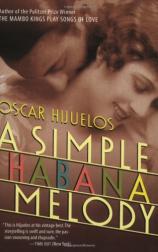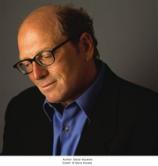Reading Group Guide
Discussion Questions
A Simple Habana Melody

1. "Rosas Puras," the simple melody of the novel's title, becomes "a blessing and a curse" to its creator, Israel Levis. How does the song reappear throughout the novel? How does its significance change over the course of Israel's life?
2. Why do you think Hijuelos gave his main character, a Catholic, a name that seems to be Semitic? Is he merely illuminating the history of Jews in Spain? Is he making a larger point about identity and religion?
3. Like any person who survived the Holocaust, Israel emerges from his experience at Buchenwald a changed man, both in appearance and in spirit. One of the most fundamental transformations has occurred in his religious thinking; he was once a devout Catholic, but now he no longer believes in the existence of God, for how could God allow such evil to exist? Does Israel's abandonment of his belief indicate that his faith was never as strong as it appeared? Is faith only valid once it's been tested?
4. Israel spends much of his adult life longing for the singer Rosa Valladares, but he never speaks of his true feelings, even though Rosa clearly returns his affections. Do you think these two would have been happy in a romantic relationship? Is it really a fear of rejection that keeps Israel from telling Rosa the truth?
5. How do you explain Israel's affection for his friend, Manny Cortez, a person who seems so at odds with Israel's own personality?
6. How do you reconcile Israel's homosexual yearnings with his frequenting of bordellos and his love for Rosa? Is he bisexual? Homosexual?
7. Why do you think Israel waits so long to notice, or protect himself from, the dangers brought about by the political situations in Habana and Paris? Is he truly unaware? Or is he relying on the good fortunes that seemed to have befallen him since his infancy?
8. As a man of voracious appetites, Israel can never seem to get enough to eat or drink and he is equally dissatisfied in his romantic life. Why do you think this is? What would truly satisfy Israel's "appetites?"
9. How does Hijuelos portray the idea of celebrity in Israel's time? How did the advantages and drawback of fame differ from those today?
10. Mistaken by the Nazis for a Jew, Israel's life in Paris becomes one of restriction, discrimination, and eventually imprisonment. How would you feel if you were cruelly persecuted for being something you are not? Could he have tried harder to convince the Nazis that he was not Jewish? Should he have done more to further the cause of the resistance?
11. If Israel had escaped imprisonment by the Nazis, how do you think his life would have turned out? Would he have professed his love for Rosa? Would he have continued to write music? Would he still maintain his devotion to Catholicism?
12. Do you agree with Israel that his life "as a composer and conductor of orchestras was really the life of a clown, or an impostor, of someone tricked by fate"(p. 23)? How important is a "simple melody" when compared to the suffering of innocents, or the destruction of a dictator's regime?
13. The novel is composed of vignettes, often very brief, and descriptively titled. What is the effect of this structure on the novel? Does it make Israel seem more real as a character?
14. At the beginning of his novel, Hijuelos defines the term, zarzuela, the kind of Cuban song Israel becomes famous for composing. How is the definition significant to the novel?
A Simple Habana Melody
- Publication Date: June 17, 2003
- Paperback: 342 pages
- Publisher: Harper Perennial
- ISBN-10: 0060928697
- ISBN-13: 9780060928698







